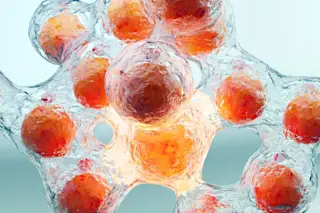Sometimes, good memory can be bad news.
It turns out fat cells have excellent memory. Researchers published a study in Nature that explains how that memory works and why it is so persistent. The work describes the genetic and cellular mechanisms that make the "Yo-Yo effect," a common phenomenon where a person can lose weight, but it returns right away.
This result has especially profound implications in the U.S. where about 40 percent of adults are either overweight or obese. It may explain why diet and exercise alone often can’t help people maintain their weight loss. And it may indirectly be an argument in favor of drugs like Ozempic.
The core of why fat cells are so stubborn comes down to epigenetics — a relatively new area of study that shows how long-ago events, experiences, or environmental exposures can affect a person’s genetic information. For example, research has shown that ...














